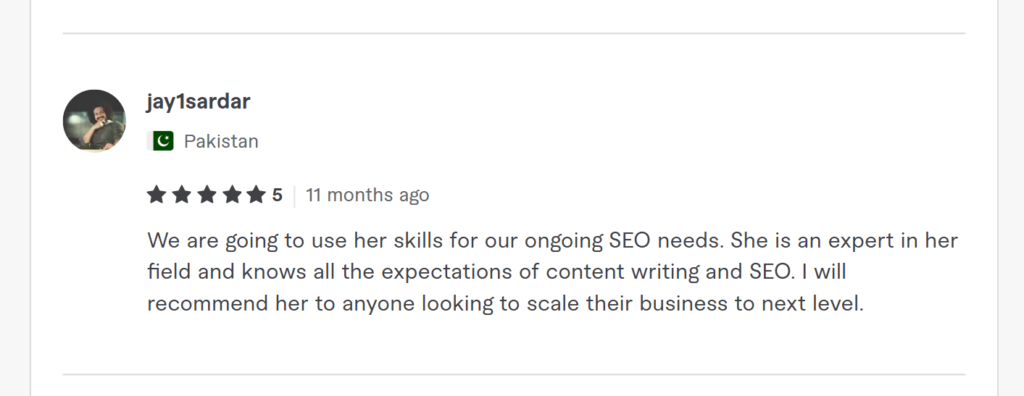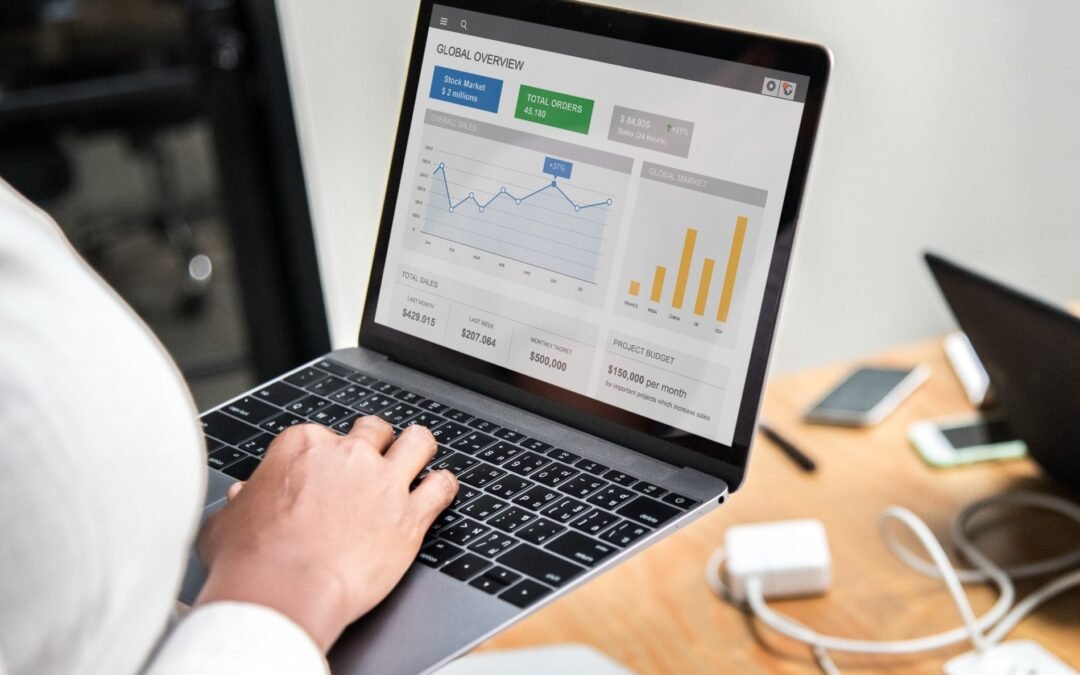In today’s digital world, having a website is the initial step. The real challenge is making sure people can find it. Getting a high website ranking on search engines like Google is the only goal for businesses, bloggers, and marketers.
Content Quality is important for website ranking. The Web content is worthless if it is not of good quality. With seemingly endless content available online, the findability of appropriate information is important.
Search Engines (SEs) are the tools used to find reliable content. A planned strategy is needed to rank well in search engine results pages (SERPs). If you are just starting out or want to improve your site’s ranking then understand website ranking strategies to climb search engine results pages (SERPs) and attract more people.
In this post, we’ll look at step-by-step strategies for improving your website’s exposure and ranking well.
How Search Engines Determine Your Position: The Science Behind Website Ranking
Search engines determine positions by checking the relevance and quality of web pages relative to a given search term. A ranked website increases organic traffic, improves search engine visibility, boosts domain authority, and improves conversion rates.
Search engines use a mixture of algorithms to determine your website based on factors like content quality, backlinks, user experience, and technical SEO.
Step-by-Step Strategies to Improve Website Ranking
Keyword Optimization: The Foundation of Website Ranking
Keywords are important for website ranking because they help search engines assess how relevant a web page is to user queries. Here is how they affect rankings and SEO:
- Understanding Keyword Intent
Identify whether users are looking for information (informational intent), making a purchase (transactional intent), or comparing options (navigational intent). Align your content accordingly.
- Finding High-Impact Keywords
Use tools like Ahrefs, SEMrush, and, Google Keyword Planner to identify high-traffic, low-competition keywords that are relevant to your niche.
- Leveraging Long-Tail Keywords
Long-tail keywords are specific phrases with lower competition but higher conversion potential. They help target niche audiences and improve ranking.
Content is King: Creating High-Value Content for Website Ranking
Search engines prefer websites with interesting, educational, and helpful information.
- Crafting Engaging, Keyword-Rich Content
Develop informative, high-quality content that naturally incorporates keywords to boost website ranking.
- Utilizing Multimedia to Enhance Website Ranking
Use videos, images, and infographics to engage users and increase dwell time, a key factor in website ranking.
- Updating Content Regularly
Keep material fresh by revising outdated information, and posting at a constant frequency.
On-Page Optimization: Optimize Your Website for Higher Website Ranking
Use targeted keywords in your title tags and meta descriptions to boost your website’s search engine rating and click-through rates.
- Structuring Content with Header Tags
For better readability structure content by using H1, H2, and H3 tags.
- Image Optimization for Better Website Ranking
Optimize images by compressing files, and adding suitable keywords to boost website ranking.
The Power of Backlinks: Strengthening Authority for Website Ranking
Use backlinks because search engines consider them to be an indication of authority and trust.
- Earning High-Quality Backlinks
Focus on acquiring backlinks from authoritative sites to improve website ranking and domain credibility.
- Implementing Guest Blogging for Website Ranking
Write guest posts on industry-related blogs with backlinks to your website to enhance authority.
- Broken Link Building Strategy
Identify and replace broken links on high-authority websites with your own relevant content to gain backlinks and improve website ranking.
Technical SEO: Enhancing Website Performance for Better Website Ranking
A technically optimized website increases both search engine crawlability and user experience.
- Implementing Structured Data
Use schema markup to help search engines understand your content and improve website ranking.
- Fixing Crawl Errors
Regularly check Google Search Console for crawl errors and fix them to ensure smooth indexing and better website ranking.
- Creating an XML Sitemap
Generate and submit an XML sitemap to search engines for better indexing and improved website ranking.
Local SEO: Dominating Local Research for Enhanced Website Ranking
On-page SEO helps search engines understand content relevance.
- Optimizing Google My Business Profile
Ensure your Google My Business listing is accurate and complete for improved website ranking in local searches.
- Encouraging Customer Reviews
Positive reviews boost local search rankings and establish credibility for better website ranking.
- Local Keyword Targeting
Use location-based keywords in content and meta descriptions to improve website ranking in specific regions.
Mobile Optimization: Adapting to the Mobile-First Era for Website Ranking
Make your website mobile-friendly, as more than half of all internet traffic comes from mobile devices.
- Ensuring Responsive Web Design
Optimize your website for mobile devices to enhance user experience and website ranking.
- Improving Mobile Site Speed
Use caching strategies and image compression to reduce mobile loading times.
- Implementing AMP (Accelerated Mobile Pages)
Use AMP technology to improve website ranking as it provides mobile users with faster-loading pages.
User Experience (UX): Creating a Seamless Journey for Website Ranking
A well-designed, user-friendly website lowers bounce rates and maintains user engagement, both of which improve rankings.
- Enhancing Website Navigation
Ensure intuitive navigation and a clean site structure for better user experience and website ranking.
- Reducing Bounce Rates
Engage visitors with compelling content, easy navigation, and fast-loading pages to improve website ranking.
- Implementing Clear Call-to-Actions (CTAs)
Guide users toward desired actions with well-placed CTAs to increase engagement and enhance website ranking.

Social Signals: Amplifying Website Visibility for Better Website Ranking
Search engines consider social signals when ranking websites. Social media platform sharing boosts exposure and interaction for your material.
- Sharing Content on Social Media Platforms
Share content on platforms like Facebook, Twitter, and LinkedIn to boost engagement and website ranking.
- Encouraging Social Sharing
Include social sharing buttons on your website to increase visibility and improve website ranking.
- Engaging with Online Communities
Participate in industry-related forums and groups to generate traffic and strengthen website ranking.
Regular Monitoring and Changes: Maintaining a Lead for Long-term Website Ranking
- Tracking Keyword Performance
Regularly check keyword rankings to assess the success of your SEO efforts and change your strategies accordingly.
- Using Analytics Tools
Use tools like Google Analytics, SEMrush, and, Ahrefs to check traffic trends, user behavior, and conversion rates.
- Adapting to Algorithm Updates
Stay up to date about Google’s algorithm changes and adjust your SEO strategy accordingly or improve website ranking over time.
Factors Influencing Website Ranking
A website’s search engine ranking is influenced by numerous factors. Among the most important are:
- The Role of Competition in Website Ranking
Getting a website ranked is more challenging because of intense competition in the online world. To stand out among the many businesses and websites competing for the same keywords, a smart strategy is required.
- How Algorithm Changes Impact Website Ranking
Google and other search engines are always updating their algorithms. Keeping up with these changes is essential, as outdated strategies can negatively impact website ranking.
- Common SEO Mistakes That Hurt Website Ranking
Website ranking can be hampered by poor SEO techniques including keyword stuffing, duplicate content, and ignoring meta descriptions. Improved visibility requires proper SEO implementation.
- Technical SEO Issues That Lower Website Ranking
Slow website speed, broken links, poor mobile optimization, and improper site structure can significantly impact website ranking. Technical SEO improvements are vital for success.
- Backlinks and Their Role in Website Ranking
Search engines consider backlinks from reliable sources as a sign of credibility. A weak backlink profile can result in poor website ranking and limited organic traffic.
Why Website Ranking Matters?
Increased Visibility & Organic Traffic
- Appearing on the First Page Matters
Over 90% of users never go past the first page of Google search results. If your website isn’t ranking high, it’s missing out on potential visitors.
- More Clicks, More Opportunities
Higher rankings mean higher click-through rates (CTR), leading to more users discovering your content, products, or services organically—without needing paid ads.
Builds Credibility & Trust
- High Rankings Equal Authority
People trust websites that appear at the top of search results. A high-ranking website signals expertise, authority, and trustworthiness (E-A-T) in your industry.
- Boosts Brand Reputation
When your website consistently ranks high, it reinforces brand credibility, making users more likely to engage with and purchase from your business.
Generates More Leads & Conversions
- Targeting the Right Audience
SEO helps you rank for relevant keywords, ensuring that your website attracts visitors who are genuinely interested in what you offer.
- Higher Conversion Rates
They are more likely to take action—whether that means making a purchase, signing up, or contacting you.
Cost-Effective Marketing Strategy
- SEO is More Affordable Than Paid Ads
Unlike PPC (pay-per-click) ads, which require ongoing investment, SEO provides long-term benefits without continuous spending.
- Sustainable Growth Over Time
Once your website ranks well, it continues to attract visitors 24/7, reducing the need for costly advertising while delivering consistent results.
Long-Term Business Growth
- Sustainable Organic Growth
Unlike short-term marketing tactics, a high website ranking leads to continuous growth and increased digital presence.
- Expanding Brand Awareness
When your website ranks high for many keywords, it increases brand awareness and establishes you as an industry leader.
Final Thoughts: Act Now to Raise Your Website Ranking
Achieving top-tier website ranking demands a strategic, multi-faceted approach that integrates:
- Keyword research
- High-quality content creation
- On-page optimization
- Authoritative backlink strategies
- Technical SEO enhancements.
High website Rankings increase Site traffic, Trust, Perceived Relevance, and Conversion Rates. By leveraging these 10 game-changing strategies, businesses can boost their website ranking, drive targeted organic traffic, and outshine competitors in the digital arena.
Successful Websites rank high in Search Engines, whereas unsuccessful Websites may not rank at all. A successful Website needs to meet the following characteristics enabled:
- Usability
- Accessibility
- Search Engine Optimized
- Social Media/Networking
Start optimizing today! Implement these strategies, monitor your results, and adjust as needed. The digital space is competitive, but with the right approach and perfect team, your website can rank higher and attract the right audience.
If you want your website to rank higher and drive meaningful traffic, let’s discuss how we can help. Check out our reviews and testimonials to see how other business and website owners are saying about Orbitwelve.

Our services not only focus on improving your website’s ranking but also on converting that traffic into sales, ensuring that your website works harder for you and your business.
Reach out today, and let’s make your website a powerful tool for success!
